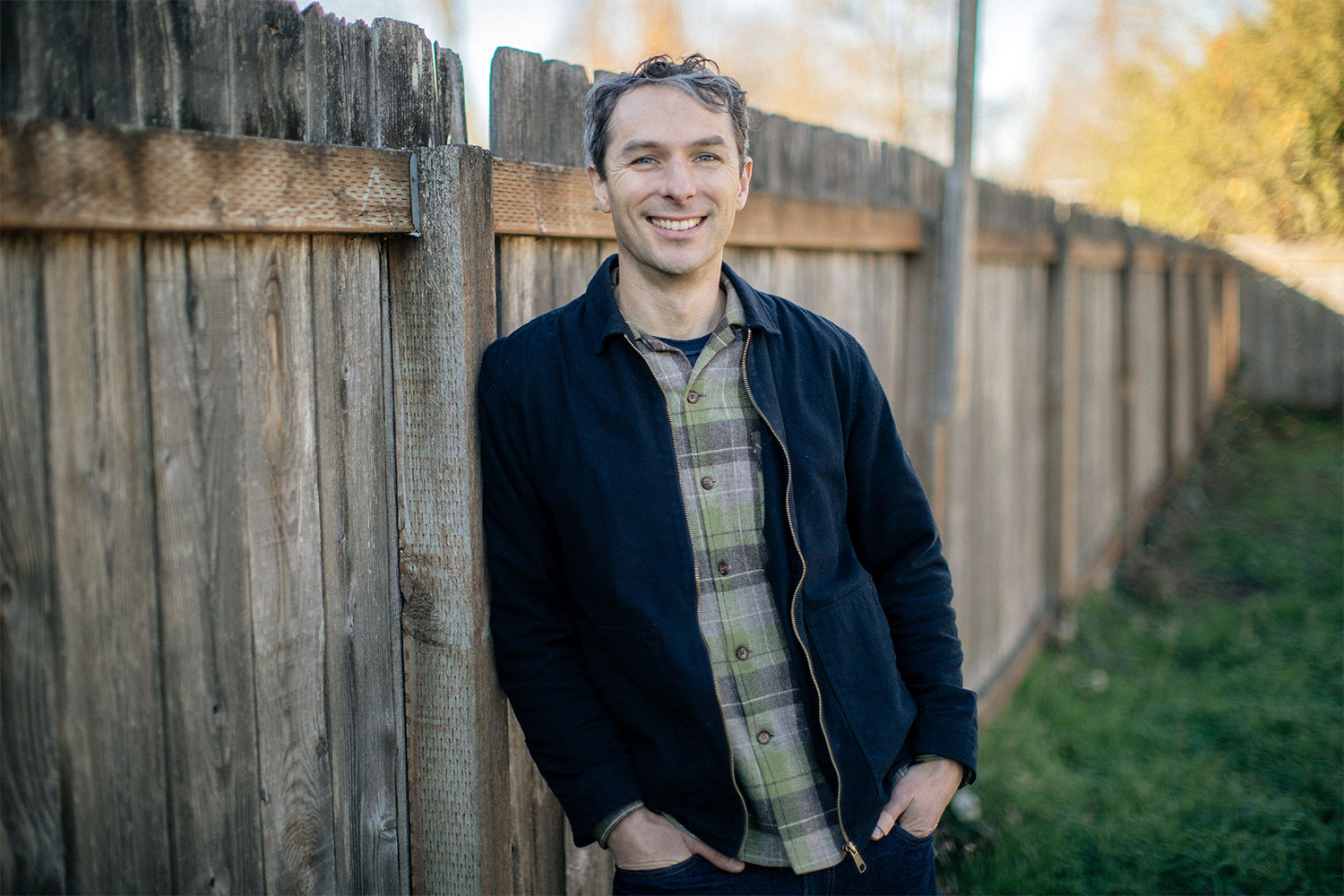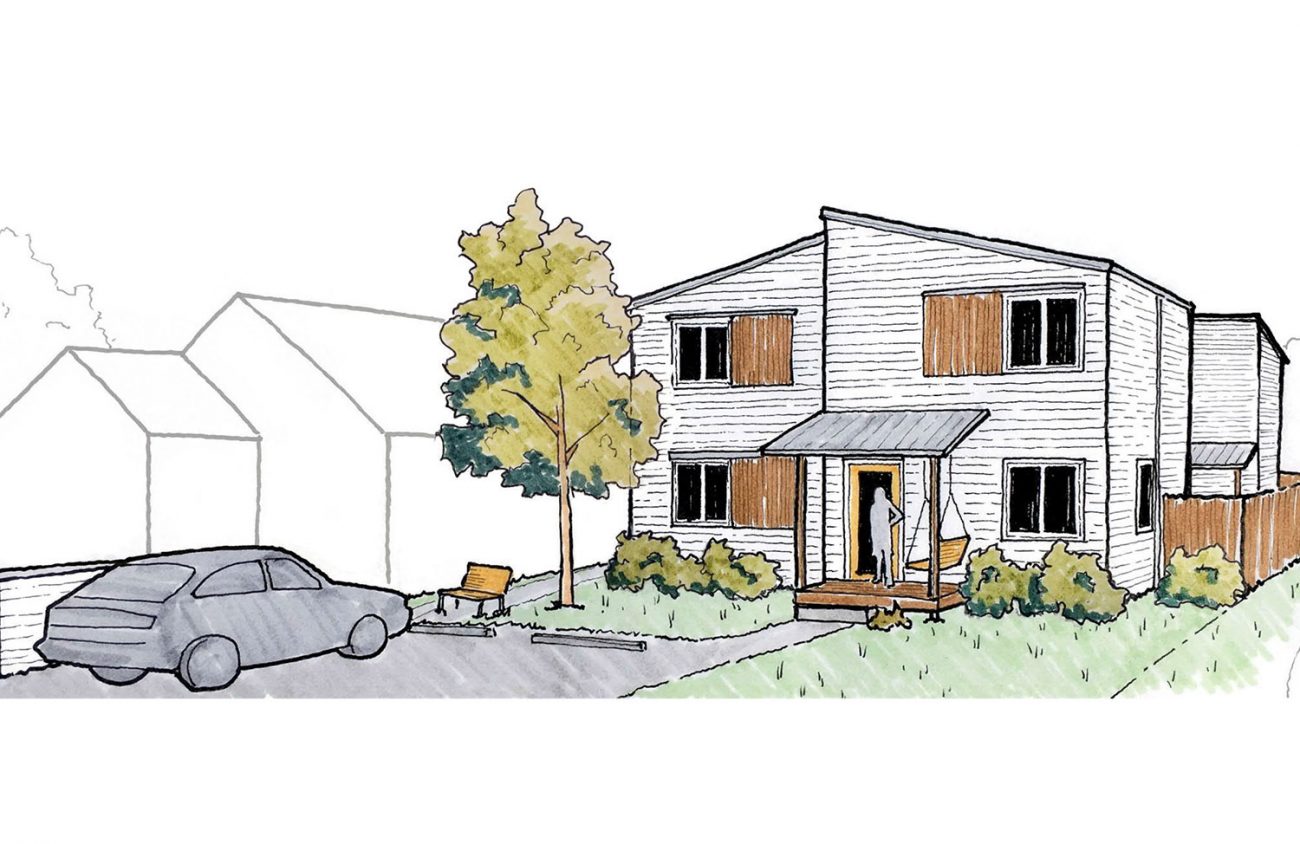Local architect and Cultivate Inc. owner Dylan Lamar says he has a solution to alleviate Eugene-Springfield’s housing affordability crisis — helping people build their own houses. His program, Backyard Barnraising, is looking for three families to join its pilot project on a plot near downtown Springfield.
The project will benefit people by giving them home ownership, the ability to live in a community and useful construction skills, Lamar says. The deadline for the first round of applications is Dec. 2.
“The American Dream should not be the exclusive privilege of the wealthy,” he says in a video on Cultivate Inc.’s website.
Lamar says he’s looking for families that make around $20,000 to $35,000 a year for his project — people whose income is just under what’s needed to buy a house in today’s market. The median sale price for homes in Eugene-Springfield increased nearly 40 percent in the last five years, according to the Regional Multiple Listing Service, an information organization for real estate brokers.
Families who apply to be in the project need to make a $12,000 down payment. They must have one person with a steady income and a credit score above 700, and one person who has a basic knowledge of power tools and is willing to work on the project for around 14 months under the guidance of a construction consultant. Lamar says he expects to break ground in March, and people will move in summer 2021.
Once the project is completed, the property will be appraised, and the families will collectively buy it from Cultivate Inc. It’s expected to cost around $368,000,, which will mean a monthly payment of around $715 per family for mortgage, insurance, taxes and maintenance fees.
The three families accepted will work together to build a duplex and a freestanding additional dwelling unit on one plot. Each of the three housing units will have two bedrooms, one and a half bathrooms and a kitchen. They will be 790 square feet each.
Lamar says splitting one plot between three families reduces the permit fees, which can be prohibitive for builders in Eugene-Springfield. Even for this project, he says, the building permits cost $41,000.
Lamar says most small-scale housing projects aren’t profitable for builders because of high permit fees. He says this contributes to the housing affordability crisis by discouraging new building by smaller companies.
Even though Lamar will be able to cut construction costs by using free labor from the families, he says the appraised market price won’t be much higher than the cost of building the houses.
The owner of the plot, John Fischer, a well-known Lane County meteorologist and gardener, says he likes Lamar’s project. As a longtime landlord in Eugene-Springfield, Fischer says he recognizes the gravity of the housing affordability crisis because people call him all the time asking to rent or buy his three rentals.
“There must be a level of desperation, because people can’t find a place to live that they can afford,” Fischer says.
He says he’s seen housing prices shoot up in the last decade, and many families can no longer afford individual plots of land. Fischer says Lamar’s idea is innovative because it splits the cost of a plot between three families, giving more people the opportunity to be a homeowner.
Enlarge

Photo by Todd Cooper
Besides being affordable, Lamar says, he wants his project to be sustainable. He’s aiming to make the houses net zero-energy buildings by putting enough solar panels on the roofs to cover the families’ energy needs.
Lamar says he hopes to make a simple living building two or three of these projects each year. Land is scarce in Eugene-Springfield, but he sees opportunities in Oregon Senate Bill 2001, which allows most single-family homes to build an additional dwelling unit, a self-contained studio unit on a single-family lot. Eugene isn’t compliant with the bill yet, but Lamar says the city has to adopt the bill soon.
He says he wants to use his pilot model to build multiple ADU projects in a neighborhood with the same group of families. Lamar says he would partner with homeowners to build ADUs in their backyards. He says he would have the people who live in the ADUs become co-owners of the property, which could benefit homeowners because somebody else could help pay their mortgages.
We need to find ways to let people own ADUs instead of just renting them, Lamar says, “to really increase the availability of homeownership in the community.”
He eventually wants to partner with land trusts and cooperatives to put restrictive deeds on his projects that would make them permanently affordable by limiting what they could be sold for, Lamar says.
For now, Lamar says he’s focusing on his pilot project, to build affordable housing for three families.
Find the application and more information at CultivatePlace.com.
